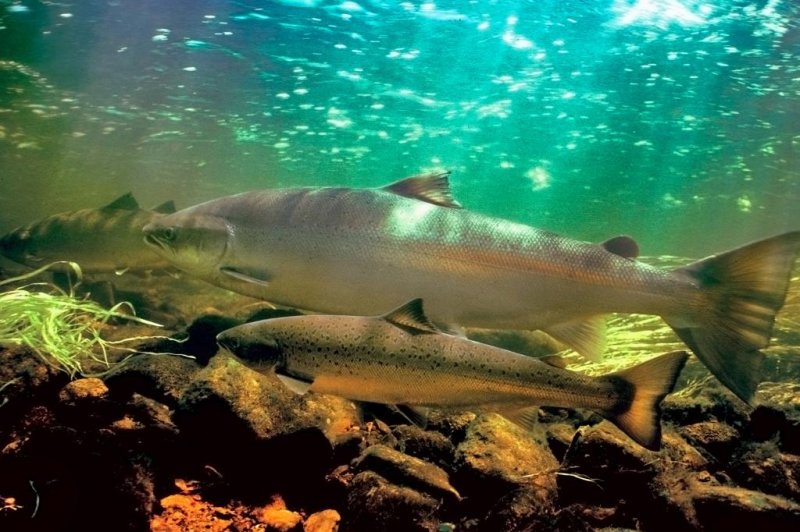Coho salmon are an endangered species. Photo by NOAA/FWS
SEATTLE, Oct. 9 (UPI) -- Coho salmon return each autumn to the tributaries of the Pacific waters of the Northwest. But in their upstream quest to spawn, they face swift currents and, in many streams and rivers, toxic runoff.
New research shows just how deadly the effects of runoff is for coho salmon. Runoff is the polluted water that collects on highways, parking lots and other urban expanses before funneling into local waterways.
But researchers also found a simple solution: cheap and simple filtration stations made of sand and soil.
When scientists exposed coho salmon at a hatchery in Washington State to toxic stormwater runoff, all of the fish died within a day. Many died within hours.
But when runoff was filtered through a layered cylinder of gravel, sand, compost and bark, all of the fish survived. The filtration system drastically reduced the levels of polyaromatic hydrocarbons, byproducts of fuel combustion, and halved the presence of toxic heavy metals.
"What impressed me most was the effectiveness of the treatment," Jen McIntyre, a researcher at the stormwater program at Washington State University. "It's remarkable that we could take runoff that killed all of the adult coho in less than 24 hours -- sometimes less than four hours -- and render it non-toxic, even after putting several storms worth of water through the same soil mixture."
McIntyre is the co-author a new paper on the experiments, published this week in the Journal of Applied Ecology. The research was a collaborative effort among scientists with NOAA Fisheries and Washington State's Puyallup Research and Extension Center.
"The recurring coho spawner deaths have been a high-profile mystery for many years, and we're now much closer to the cause," said Nat Scholz, manager of the Ecotoxicology Program at the NOAA Fisheries' Northwest Fisheries Science Center. "Although we haven't identified a smoking gun, our study shows that toxic stormwater is killing coho, and that the problem can be addressed."















